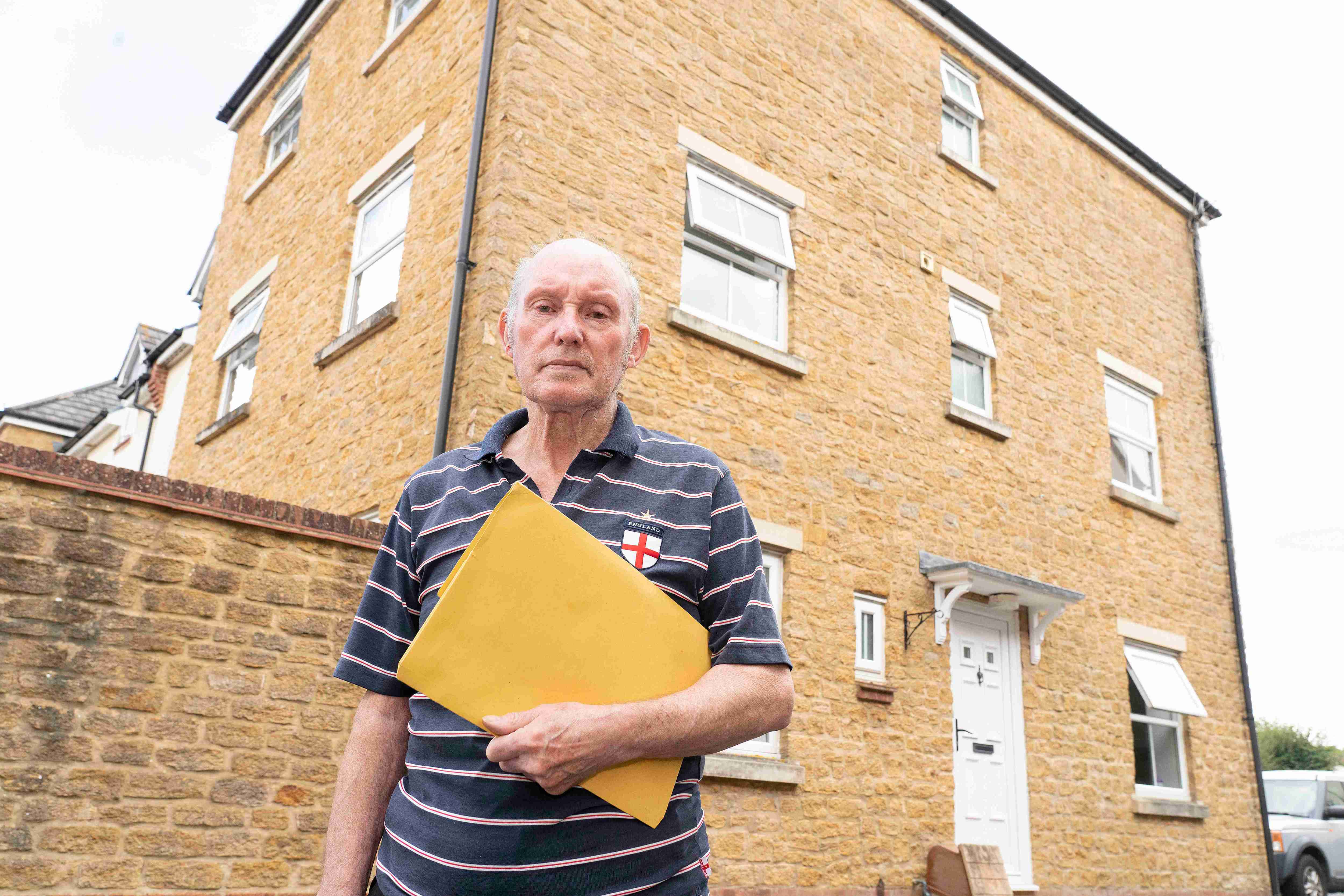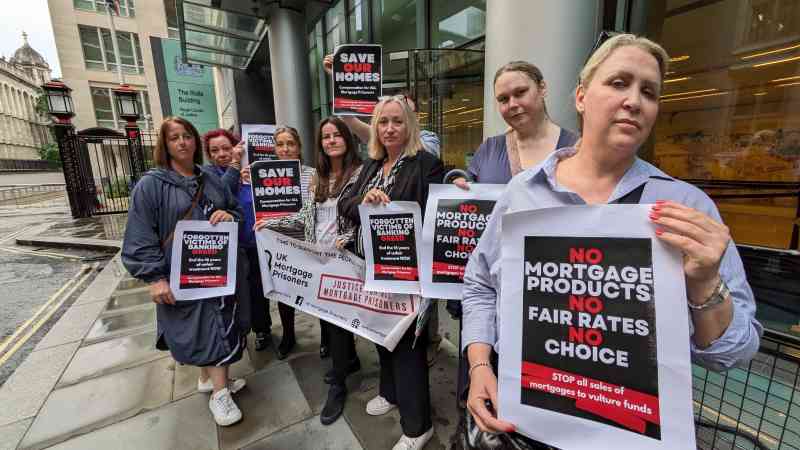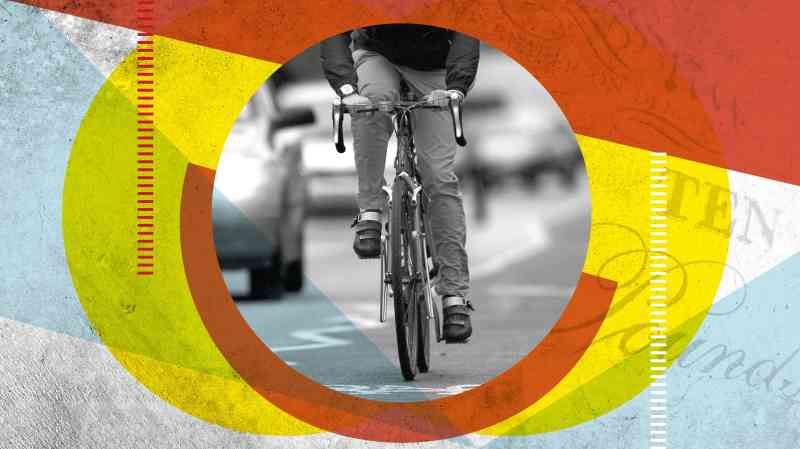The ‘mortgage prisoners’ locked in a £75m legal battle with TSB
A group of TSB customers have launched a landmark legal battle by suing the bank for allegedly locking them into “excessively high” mortgage rates for years. The deals cost them up to £30,000 in extra interest and the bank could face a total compensation bill of up to £75 million.
About 15,000 “mortgage prisoners” are seeking payouts, including 2,500 from TSB. They were previously customers of Northern Rock, which collapsed at the start of the global financial crisis in 2008. Sixteen years on, many are still paying eye-watering interest rates of up to 9.54 per cent.
Rachel Neale from the campaign group UK Mortgage Prisoners, which has about 6,000 members, said: “The preliminary trial was emotional and important for us. Having the unfairness of the extortionate rates that have been charged to trapped borrowers who had no choice who the government sold our mortgages to, being discussed before a judge, felt like the first step towards justice.”
The problem stems from a tightening in mortgage lending rules after the financial crisis. Northern Rock customers had been able to borrow up to 125 per cent of the value of their homes, which would not be approved today.
Many also took out interest-only deals, which were common before 2008. These mortgages have lower monthly payments because customers are not paying off the capital they have borrowed, only servicing the interest. This becomes a problem if they fall into negative equity or do not have a plan for repaying the loan at the end of the term.
Today, the most you can borrow is 95 per cent of the value of a property, and interest-only deals are reserved for those with a large equity stake in their home.

These customers have therefore been locked out of cheaper mortgages because they do not meet affordability requirements. When their deals ended they were transferred to a standard variable rate (SVR), which is typically the most expensive mortgage option available.
MPs have urged firms to help these so-called mortgage prisoners. Martin Docherty-Hughes, at the time the MP for West Dunbartonshire, said in March that the government had a duty to “help them find a way out of their current mess”.
He said: “Our constituents have been dealing with high mortgage rates for over a decade. We gain nothing from pushing our constituents further into debt.”
• Interest rates finally fell — but what about your mortgage?
Locked in
When David Riley bought a five-bedroom townhouse in Martock, near Yeovil for £210,000 in 2006, he took out a £200,000 interest-only mortgage with Northern Rock at a rate of about 6.5 per cent. His monthly payments were about £800.
When Northern Rock collapsed, the government took on its mortgages using an entity it created called Northern Rock Asset Management, which honoured the terms of mortgages such as Riley’s.
In 2016, about 27,000 loans, including Riley’s, were sold to Whistletree, a company set up by TSB to manage the accounts. Crucially, despite having the same parent company, Whistletree customers are charged an SVR of 9.54 per cent compared with 7.25 per cent for TSB customers. This 2.29 percentage point gap has been in place since Whistletree was created. This means that if you had a £100,000 mortgage on a ten-year term, you would pay £1,296 a month on Whistletree’s SVR compared with £1,174 with TSB — an extra £14,640 over the term.
SVRs tend to move with the Bank of England’s base rate of interest. As Bank rate started to increase in December 2021 from its record low of 0.1 per cent, so did Riley’s repayments. By 2023, when Bank rate hit 5.25 per cent, they had reached £1,200 a month and, struggling to pay, he ended up six months in arrears.
By the time Riley, now 76, a retired Royal Navy engineer who later wrote helicopter manuals, sold his property for £240,000 last year, his debt had ballooned to £243,000.
Riley, who now rents a one-bedroom flat, said: “I paid all that money and got nothing for it. The cost got higher and higher and higher. I kept falling short of paying it, and the debt got bigger and bigger.”
• I want to be a landlord, can I get a mortgage?
The battle begins
Riley, who has now settled his debt, says he is grateful to TSB for not evicting him when he was unable to pay his mortgage but feels angry that he did not have access to cheaper deals. “It was really tough at times,” he said. “Being in this mortgage black hole placed a strain on me. I try to look on the positive side of things, but it wears you down.”
Riley is one of about 2,500 people who have joined a group litigation instigated by the law firm Harcus Parker, which last month started proceedings against TSB at the High Court in London.
Harcus Parker estimates he could be in line for a £27,000 payout, which is what it estimates he was charged in “excess” interest. Average claims are between £20,000 and £30,000, it said.
Harcus Parker is representing 15,000 former Northern Rock clients, including 2,500 from Whistletree. It will argue that products such as 125 per cent mortgages should never have been sold because they fall foul of the Consumer Credit Act.
Matthew Patching from Harcus Parker, said: “This trial represents the first significant step towards compensation for our clients, who have paid very high interest rates on mortgages for a significant period of time.
“It’s not just about the money; they feel very strongly that there should be recognition that they’ve suffered a terrible injustice.”
The expensive deals may also fall foul of the consumer duty rules, introduced by the Financial Conduct Authority last year, which require firms to ensure “good outcomes” for clients. These rules were last week extended to products that are no longer available to new customers, which means the Northern Rock accounts are now covered.
Patching said: “The claimants certainly don’t think that TSB has ensured they received a good outcome. They will say that the consumer duty requires a fair rate of interest to be charged on their mortgages.”
What next?
The next court hearing in the TSB case is expected later this year.
TSB denies that Whistletree customers are mortgage prisoners. It said Whistletree provides deals to existing customers to which they can switch without the need for fresh credit checks or documents, and are available via brokers or directly with the firm.
These deals started to be offered in 2017, though they were considerably more expensive than those available to TSB customers until 2020, Harcus Parker said. Whistletree said since introducing these deals, two-thirds of its customers have moved to a new mortgage rate or closed their mortgage.
Whistletree also offers a mortgage deal at up to 200 per cent loan to value, which aims to help those in negative equity to switch off the SVR. This is fixed for two years at 6.24 per cent with no arrangement fee.
David Hollingworth from the broker L&C Mortgages said the Whistletree deals “give borrowers an option if open market options are hard to access due to criteria or affordability restrictions”.
Most borrowers are unable to move to a different lender because they would not be able to pass the affordability checks.
If you can pass the affordability checks, there are cheaper deals on the open market. For example, Barclays offers 4.26 per cent on a five-year fixed-rate remortgage with a £999 fee if you have a 40 per cent deposit. Whistletree’s equivalent charges 4.34 per cent with a £995 fee.
There are no other active litigation cases involving mortgage prisoners, though Harcus Parker is encouraging customers of other firms to register their interest.
Harcus Parker will take a 35 per cent cut of any payout.






